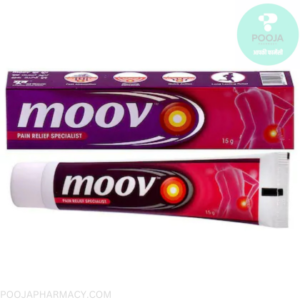DESCRIPTION
Coconut oil is an edible oil extracted from the meat, or kernel, of the coconut palm fruit. It is a solid fat at temperatures below 77°F (25°C) and a clear liquid oil at warmer temperatures. Unrefined varieties have a distinct coconut aroma and flavor, while refined versions are typically odorless and tasteless.
Composition and Properties
Coconut oil is primarily composed of saturated fats, with a high percentage of lauric acid, a medium-chain fatty acid. It is 100% fat and contains no cholesterol. It is known for its high smoke point, which makes it suitable for various cooking methods like sautéing and frying.
Common Uses
- Cooking and Baking: It can be used as a substitute for butter or other cooking oils.
- Hair Care: It is used as a hair treatment to help moisturize, reduce protein loss, and add shine.
- Skin Care: It works as a natural moisturizer for the skin and can be used in DIY body scrubs and as a makeup remover.
- Oral Hygiene: The practice of “oil pulling” with coconut oil is sometimes used to support oral health.
Health Information
The health effects of coconut oil are a subject of ongoing research and debate. While some studies suggest benefits, many health organizations recommend limiting its consumption due to its high saturated fat content, which can raise cholesterol levels.
Disclaimer: This information is for general knowledge and informational purposes only, and does not constitute medical advice. It is essential to consult with a qualified healthcare professional before making any decisions related to your health or diet.
Culinary Use
- Sautéing and Frying: Refined coconut oil is best for high-heat cooking because it is tasteless, odorless, and has a smoke point of 400-450°F.
- Baking: You can use solid coconut oil as a 1-to-1 substitute for butter in many baking recipes. It works well for cookies, cakes, and other baked goods, and can impart a subtle coconut flavor if you use unrefined oil.
- Flavoring: Unrefined (virgin) coconut oil has a distinct coconut aroma and flavor, making it a great addition to dishes where you want that taste to come through, such as curries, stir-fries, and tropical-themed recipes.
- Smoothies and Drinks: A small amount of melted coconut oil can be added to smoothies or coffee for a boost of fat and a creamy texture.
Hair Care
- Hair Mask: For a deep conditioning treatment, massage a teaspoon or two of coconut oil into your hair, from the mid-lengths to the ends. You can leave it on for a few hours or even overnight before washing it out thoroughly with shampoo.
- Pre-Wash Treatment: Applying coconut oil to your hair 15-30 minutes before shampooing can help prevent it from soaking up too much water, which can reduce damage during washing.
- Styling Aid: A very small amount of coconut oil can be rubbed between your hands and smoothed over dry hair to tame frizz and add shine. Be careful not to use too much, as it can make hair look greasy.
- Scalp Treatment: Massaging a small amount into your scalp can help with dandruff and dry scalp issues.
Skin Care
- Moisturizer: It can be applied directly to the body as a moisturizer, especially on dry areas like elbows, knees, and hands. It works best when applied to damp skin after a shower to lock in moisture.
- Makeup Remover: Coconut oil can be used to dissolve makeup, even waterproof mascara. Simply massage a small amount onto your face to break down the makeup, then wipe it away with a cloth and cleanse your face as usual.
- Body Scrub: You can create a simple exfoliating scrub by mixing coconut oil with ingredients like sugar or coffee grounds.
- Lip Balm: A tiny amount of coconut oil can be used to moisturize and protect dry, chapped lips.
Disclaimer: While coconut oil has many uses, it’s important to be mindful of its properties. It is highly comedogenic, meaning it can clog pores, so some people with acne-prone or oily skin may want to avoid using it on their face. It is always a good idea to perform a patch test on a small area of your skin before applying it widely.













Reviews
There are no reviews yet.